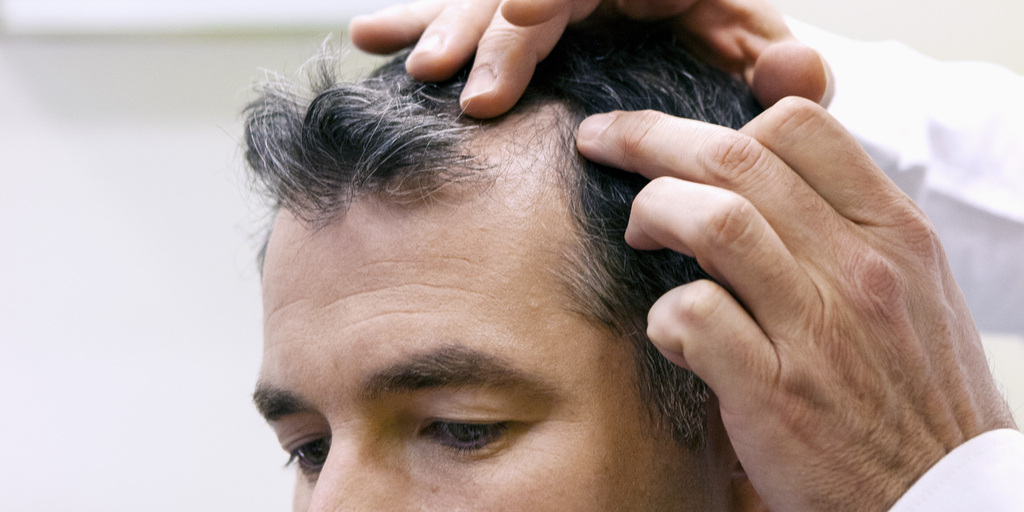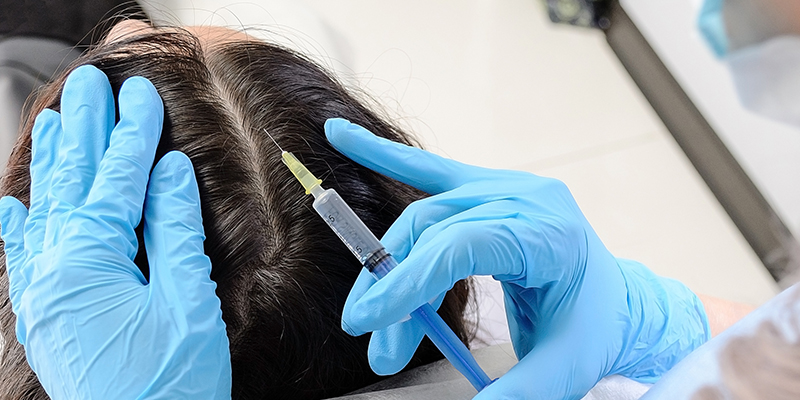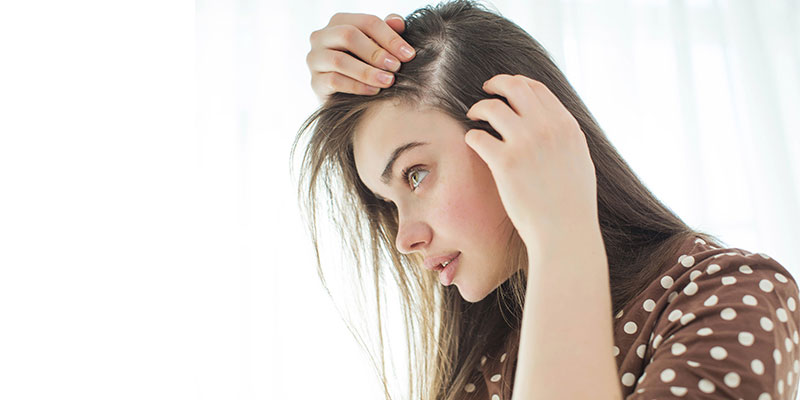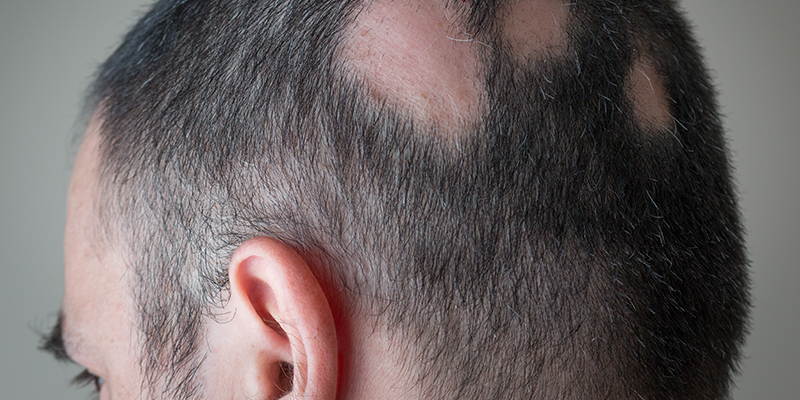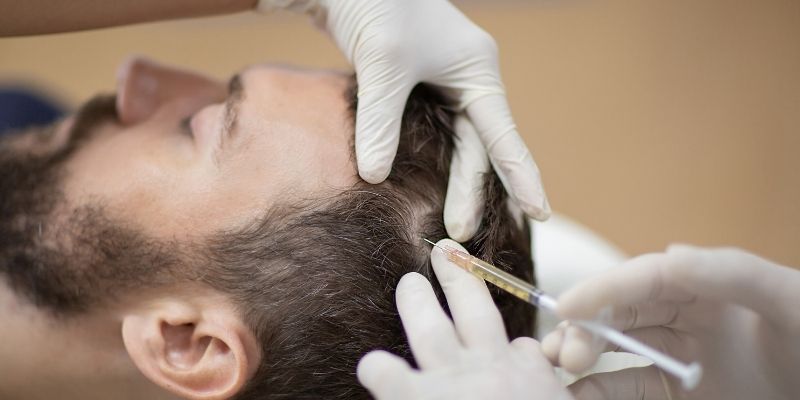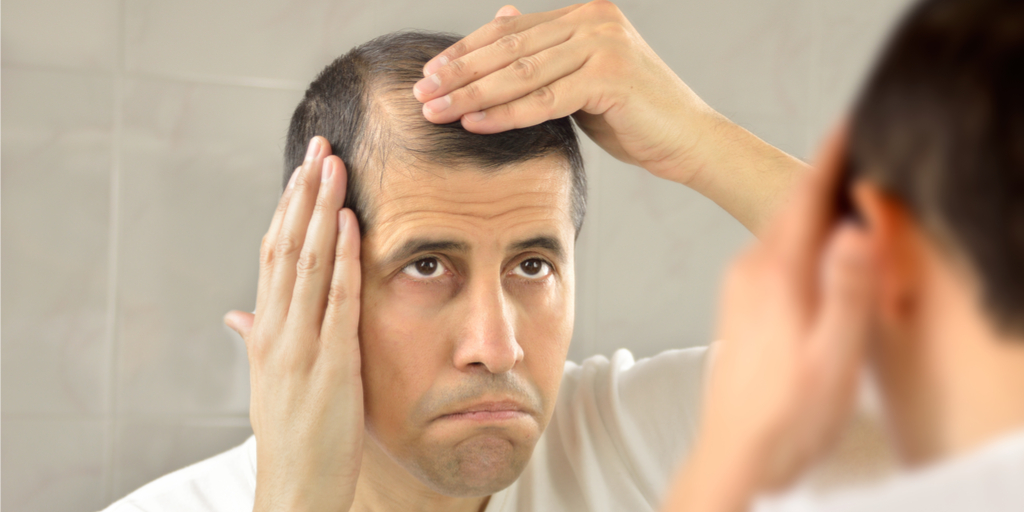What Is Syphilis Hair Loss And How To Treat It?
Hair loss is a very common concern and most of us face this at some point in our lives. While a few strands of hair falling out each day, is normal but anything beyond 100 strands a day and apparent signs of hair loss from specific areas of scalp, is a cause of concern. When hair loss is caused due to infections or health condition it becomes even more serious. One such condition is syphilis, caused by Treponema pallidum, it is a bacterial infection of the skin where hair loss can be a potential side effect. The mechanism and the relation between syphilis and hair loss is explained below along with possible treatment options.
Can Syphilis Cause Hair Loss?
Yes, syphilis can cause hair loss just like other reasons such as genetics, hormonal imbalance, stress, unhealthy diet. Syphilis is essentially a sexually transmitted disease that results in the formation of lesions and rashes by affecting the skin’s mucous membrane. Hair loss does not occur in the primary stage of the disease. However, secondary syphilis hair loss is reported in many cases and has about 2% to 7% incidence rate. Hair loss in the secondary stage of the disease can be due to the lesions forming on the head. Apart from the rashes being extremely itchy, they also damage the hair follicles and impair the regular hair growth cycle. Scratching and the damage caused to the follicles, leads to hair loss. Another hair loss scenario commonly seen, is in the absence of any syphilis rashes on the head. Hair loss occurs in the form of patches or as general hair thinning.
Also Read: Hair Loss Treatment
Types Of Syphilitic Alopecia (Hair Loss)
Depending on the occurrence of hair loss in the presence or absence of characteristic symptoms of syphilis, syphilitic alopecia is divided into two types –
I – Symptomatic Syphilitic Alopecia – When the hair loss is due to the formation of skin lesions on the scalp, it is called symptomatic syphilitic alopecia.
II – Essential Syphilitic Alopecia – When skin lesions are absent on the scalp but secondary syphilis hair loss is seen, it is called essential syphilitic alopecia. This is further divided in three categories –a) Moth-eaten alopecia b) General thinning of hair c) Moth-eaten alopecia accompanied with general thinning of hairMoth-eaten alopecia occurs in the form of patchy hair loss. It not just affects the scalp but also other areas of the body such as eyebrows, beard, and pubic area.
Also Read: How to Cure Male Pattern Baldness?
Effects Of Syphilis On The Hair Follicles
Syphilis can affect the hair follicles and damage them in two ways – either by forming rashes on the scalp or by generally affecting the hair growth cycle and pushing more hair into the telogen (resting) and catagen (shedding) phase. Some other effects of syphilis on the hair follicles are –
- Causes loss of hair shaft
- Interferes with the hair growth cycle
- Causes inflammation (in symptomatic syphilitic alopecia)
- Plugs or clogs the hair follicles
- Accumulates lymph cells near the affected hair follicles
- Telogenization
- Clumping of melanin close to follicles
- Formation of sheaths around anagen hair roots
- Dystrophic hair roots
- Increase in catagen hair follicles with decrease in anagen (growing phase) hair follicles
All of these effects may or may not be present at the same time but are characteristic to the various types of syphilitic alopecia. Some of these effects resemble alopecia areata. Hence, a proper diagnosis is needed to distinguish between these two types of hair loss.
Also Read: What Are The Main Causes Of Hair Loss In Men & Women
Will Hair Lost Due To Syphilis Grow Back?
Yes, as syphilis hair loss is not permanent. In many cases, the hair loss slowly reverts to its original growth rate when appropriate treatment is being taken for the bacterial infection. Once the infection is cleared from the body, the hair starts to grow again and there can be an increase in hair density and volume. However, in some cases, the hair follicles are damaged beyond repair and cannot be rejuvenated to their healthy state.
What are the Treatments For Syphilis Hair Loss?
Apart from taking the prescribed antibiotics for getting rid of the syphilis bacteria from the body, additional treatments that specifically target the hair follicles can be taken to ensure that the syphilis hair loss becomes reversible.
Platelet Rich Plasma (PRP) therapy is being widely used across India to treat different types of hair thinning and hair loss. This treatment can also be used for syphilis hair loss. Once the infection has cleared from the body, blood is drawn from the arm and subjected to centrigufal to separate the platelets from the plasma. These platelets are then injected back into the affected areas of the scalp after being activated with necessary ingredients. The motive behind injecting platelets is that these cells found in the blood are rich in essential growth factors. Supplying these directly to the hair follicles will repair the damaged follicles and enhance hair growth.
Before And After Results

Also Read: PRP Vs. Other Treatments For Hair Fall – Which Is Better?
Depending on the hair loss you have experienced, the dermatologist will recommend the number of sessions required for desired results. This procedure poses no adverse effects and has no downtime at all. In addition to PRP therapy, topical lotions or gels such as minoxidil and finasteride may also be prescribed to you by the dermatologist. These are the only USFDA approved hair fall control topical medicines which are readily available over the counter.
Research and incidence reports state that syphilis causes hair loss. An efficient diagnosis is essential to identify the underlying cause of the hair loss, so that the best course of treatment can be administered to treat both the bacterial infection and the aesthetic hair loss from scalp. Antibiotics in conjunction with dermatologically approved treatments make syphilis hair loss curable.






